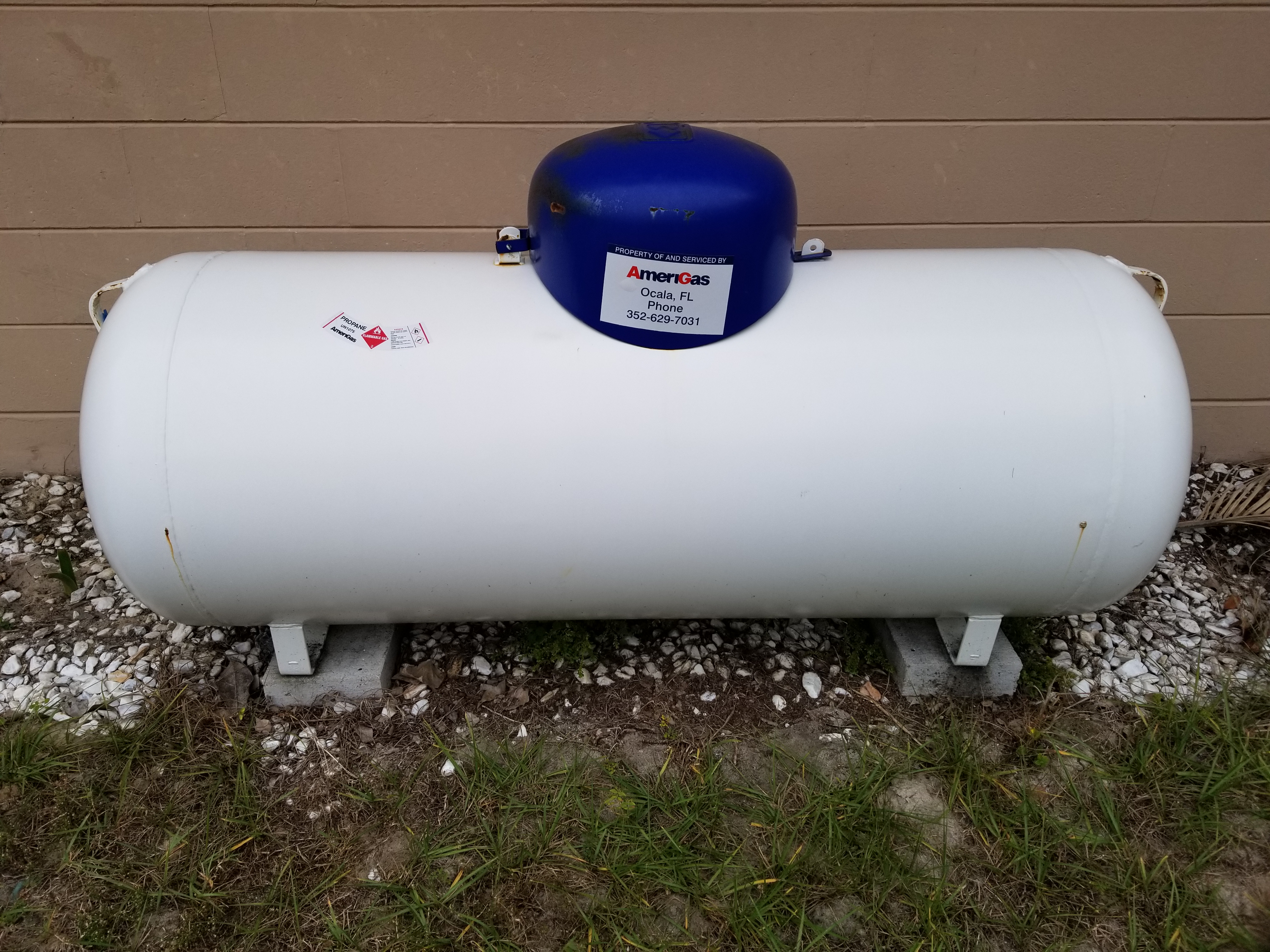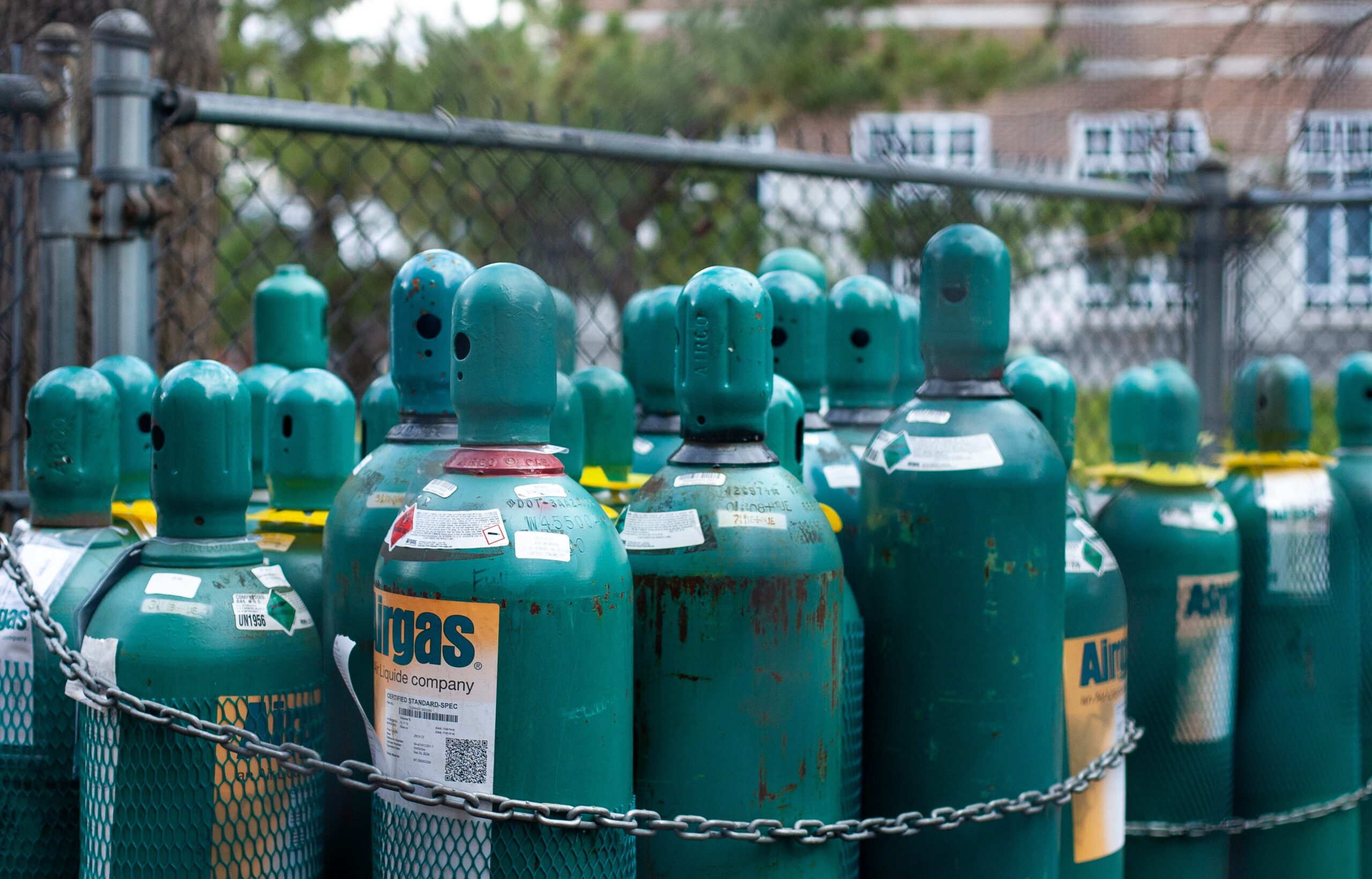Us Crimes Propane Tank – If you’re not sure where to find a specialized recycling center, contact a local propane supplier. They can often direct you to locations in the area that accept and handle hazardous materials like an old propane tank. City government websites may also include information on where and how to dispose of old tanks. Do not try to sneak a propane tank into the regular recycling to curbside garbage because lingering propane can explode or combust under pressure or when exposed to excessive heat.
By Stacey L Nash | Published Jan 13, 2022 4:50 PM
Us Crimes Propane Tank

Earlier this month, especially after the Colonial Pipeline shut down, there were concerns about gasoline shortages, that for some recalled the 1970s. The pipeline, however, was repaired within a week, making the crisis a short-lived one.
Propane Explosions
You’ll need to get your propane grill tank re-certified periodically, depending on the tank. This is essential in order to keep your propane tank in safe operating condition. When you get a new grill tank from AmeriGas, it’s already been certified. If you’re concerned about an old tank, you can exchange it for a new one to be sure it’s certified, or Contact AmeriGas for additional support.
Crystal methamphetamine makers use anhydrous ammonia in the manufacture of the drug. Anhydrous ammonia is easily obtainable because of its use as a fertilizer: it can be found on many farms and is sold by agricultural supply concerns.
Propane tanks do not explode. They do not implode and nor do they rupture or come apart on their own. In fact,
bringing a propane tank to the point of “explosion” is a tremendously difficult and time consuming task that’s not as
simple as most people think. Many people believe that a propane tank “explosion” can occur with the slightest of ease.
This is not the case whatsoever and people should understand that a propane tank, operating under normal circumstances
will not explode or rupture. Safety devices and mechanisms are in place to prevent explosions, accidents and propane
tank ruptures or breaches. Just like any other hazardous material or activity, human error is a primary factor in
preventing or contributing to any type of accident, however serious in nature.
Origins: This warning is hard to classify with a simple “True,” “False” or “Undetermined” because it contains factual elements that have been wrapped in what appears to be no more than conjecture. So we’ll try to break it down, piece by piece.
Take Small Propane Cylinders To A Hazardous Waste Collection Site
Some retailers (such as Wal-Mart) offer their propane-buying customers a tank exchange program, whereby empty tank and bottles can be exchanged for full ones for a small fee. The consumer does not get back his or her own tank; instead, an already-filled unit is provided in exchange.
/cloudfront-us-east-1.images.arcpublishing.com/gray/URNLKLNZXVHV7J755C6YCHBTSU.bmp)
Depending on the supplier and location, you may have to pay a fee in the store or at a kiosk. It depends on the company and location, but either way, the empty tank stays at the depot, and a full tank of equal size goes home with you.
In some cases, the tank can be recycled or exchanged. If you have a propane supplier nearby, the tank can probably be refilled. However, propane tanks do have limits to how many times they can be recycled and refilled. Used propane tanks damaged by corrosion, dents, or use require proper disposal, and it’s important to understand how to get rid of propane tanks properly.
If you’re not sure how to dispose of propane bottles or small tanks, like those used for camping and small portable heaters, think of it as a smaller version of a larger tank. It may be small, but it can still contain dangerous residual propane. When they’re no longer usable, take them to a hazardous waste collection site. A propane supplier, hardware store, garbage disposal service, or recycling center may be able to direct you to the closest location or provide additional information about how to dispose of a propane tank.
Propane Stayed
A propane tank BLEVE will occur when the container is subject to extreme heat, such as in a fire. While the tank is
being heated, the liquid propane inside is being heated causing it to expand. The safety relief valve will open
allowing pressure to vent to the outside atmosphere. If the pressure inside the tank grows to a level exceeding that
at which the safety relief valve can expel it from the tank, the propane tank may rupture. If flames or a source of
ignition is present, the propane will ignite resulting in an explosion. It’s important to know that a BLEVE will occur
only if the conditions are right, such as being subject to continuous flame impingement over a period of time. The
possibility of a propane tank explosion (BLEVE) is extremely remote.
“U.S. average residential propane prices increased by more than 52 cents a gallon, or 30 percent, during the 2020-21 heating season, which began Oct. 1 and ended March 31,” the report said. “The increase in prices can be attributed primarily to higher crude oil prices, seasonal withdrawals from propane inventory and increased global demand for U.S. propane exports, the EIA says. The price change was the largest within-season increase in residential propane prices since the 2013-14 season when propane markets tightened because of a polar vortex and low inventories.”
of choice for those who siphon it off from farms for use in the manufacture of meth is the portable propane tank, because those tanks are small enough for a thief to easily cart away. (Fire extinguishers have been put to this use as well.) Propane tanks that have been used for this type of transport or storage typically develop a greenish or bluish corrosion on their valves.
High winds and hail—often accompanying hurricanes, tornadoes, and winter storms—can move, shift, or damage gas lines and tanks. If your propane tank becomes dislodged from its service line, it’s likely to be leaking gas out into the surrounding area. A spark from a fallen power line or other ignition source could pose a danger to anyone nearby. Debris and water can find their way inside regulators and controls, causing potential safety issues. If you have any doubts about your safety, leave the area immediately, alert AmeriGas or your utility company, and have your property inspected by a qualified building inspector or structural engineer before re-entering.

Q I Don’t Know How To Dispose Of Propane Tanks Or Where To Dispose Of Propane Tanks Can I Take My Rusted Tank To The Dump Or Can I Recycle It?
Here’s What You Need to Remember: “U.S. average residential propane prices increased by more than 52 cents a gallon, or 30 percent, during the 2020-21 heating season, which began Oct. 1 and ended March 31,” the report said. “The increase in prices can be attributed primarily to higher crude oil prices, seasonal withdrawals from propane inventory and increased global demand for U.S. propane exports, the EIA says.
WFSB reported this week that propane has been rising in price, with the vice president of Connecticut Propane telling the news station that demand has increased to the point of prices rising. That could mean trouble either for those who use propane to heat their pools or to power their barbecue grills.
CBS Los Angeles had reported earlier this month of a nationwide shortage of pool supplies, including chlorine tablets and propane tanks, with the price of chlorine tablets, in particular, doubling over the course of the last year.
Tanks that are past their expiration date, damaged, rusted, or otherwise no longer usable cannot go to a standard recycling center. They pose a safety hazard because of the potential for residual propane still left inside the tank. However, they can go to a specialized recycling center with the equipment and employees trained to completely drain old propane tanks.
Exchange An Empty Propane Tank For A Refill
A: Propane is flammable. Most waste and recycling facilities will not accept an old propane tank because it’s considered hazardous waste. That makes disposal a little more complicated than throwing out the pizza box from last night’s dinner.
A used propane tank that is still in good condition can be exchanged at a designated retailer, where you leave your empty tank in exchange for a full tank. Many propane supplier companies have exchange depots outside of local and chain hardware stores, gas stations, and convenience stores. Many of these depots are self-serve, 24 hours a day, 7 days a week.
Meth cooks are getting the propane tanks from the exchanges at Wal-Mart, Kroger, etc. and emptying them of the propane. Then, they are filling them with anhydrous ammonia (which they now have a recipe for by the way.)

Finally, regarding those in the business of swapping filled propane containers for empties, while vendors might accept obviously compromised propane tanks from consumers looking to go home with full newer canisters, they are unlikely to put those suspect units back into the sales cycle. Propane canisters that appeared to have anything wrong with them (and corrosion of any color around the valve should certainly count) would be junked rather than mindlessly refilled and passed on to the next consumer. Only tanks that are in very good condition are sent back out.
Propane Tank Strength
Re-lighting your pilot light on your own can be dangerous. Please carefully follow all of the manufacturer’s instructions and warnings concerning the appliance, and read the following list of precautions. You can contact our customer service team or appliance professional for further guidance.
The pictures below are of propane bobtail tanks that were involved in accidents. Each of these 2,600 gallon tanks
were involved in rollover accidents and were over 60% full. That means each tank contained over 1,500 gallons (~6,300
pounds) of propane. The tanks may be dented but the force of 10,000+ pounds coming down on the hard pavement is
definitely a testament of strength in itself.
“The propane supplier yesterday, called and said, at this point the agricultural supply of propane is shut off, so we’re done until we get a new supply of propane in harvesting,” a corn farmer told CTV News in Canada.
Pictured here is a tank that was involved in a grass fire. The fence caught fire and burned down around the tank.
Although the tank is no longer serviceable, it is a testament to the strength propane tanks have as well as the
manufacturing standards propane tanks are subject to. Many people believe that an LP Gas tank will explode easily if
fire is present or near. This propane gas tank is an example of the rule, not the exception.
Do Propane Tanks Explode?
If the suspected leak is coming from a portable propane tank or grill tank, and it is safe to do so, turn off the cylinder valve, turning it to the right (clockwise). If you are unable to turn off the valve, immediately leave the area and dial 911 or call your local fire department. Before you use the grill again, have a qualified service technician inspect your grill and cylinder. It’s best to move away from the source of the leak, and to ensure pets and people are not at close range.
When you come back, you MUST call AmeriGas to conduct a leak check before your propane supply is turned back on. After we confirm there are no leaks, we can also re-light your pilot lights if you need help.
/cloudfront-us-east-1.images.arcpublishing.com/gray/IV3YZFP4QBC4FAEED6E7YKYPYI.jpg)
NEVER use outdoor propane appliances (including portable heaters, grills, and generators) indoors or in enclosed areas. This could result in carbon monoxide poisoning, extreme danger, or even death. Only use appliances that are designed and approved for indoor use.
This question has been asked of many propane dealers and is also a topic discussed by people that are unfamiliar
with propane, propane tanks, propane accidents and explosions involving any type of container storing flammable or
combustible material. Propane tanks do not just explode if they fall over, are hit by the lawnmower or a car. In fact,
it would be hard to say that a propane tank will explode if it were hit by an airplane or bullet. Many people
mistakenly believe that propane tanks in any setting will explode if they are mishandled in some certain way. Let’s
explore and dispel this common myth.
Contact Your Local Propane Provider To Dispose Of Large Tanks
“U.S. domestic propane buyers will need to outbid export markets this summer to build sufficient inventories for this upcoming winter,” Antero’s David Cannelongo, vice president of liquids marketing and transportation, told that publication. “That, in turn, will drive U.S. and international liquefied petroleum gas (LPG) pricing higher.”
Anhydrous ammonia degrades the brass valves and fittings of propane tanks and bottles, rendering these units unsafe for further use, so one should therefore never buy a portable propane tank that displays the telltale bluish or greenish blossoming around its valve. (One should also report the seller of such a unit to the police, because the authorities will likely be quite interested in learning how that person came into possession of an item possibly used in the manufacture of crystal meth. Given that meth labs routinely explode, taking out not only drug manufacturers and their domiciles but also nearby houses and the innocent families that live within them, finding and reporting meth labs is truly everybody’s business.) A warning put out by the Propane Gas Association of Canada more fully discusses the dangers inherent to those misused propane tanks.
The public should be keeping an eye out for propane tanks and bottles that manifest blue or green residue around their valves, but more in the sense of looking towards their neighbors’ yards to see what the folks they live next to are getting up to.
In extreme heat, which often accompanies drought conditions, make sure the 10 foot radius around your propane tank and your propane grill is clear of flammable materials. Remove any debris that is combustible or easily ignited, including leaves, brush, any vegetation, and rags.
Bleve – Boiling Liquid Expanding Vapor Explosion
american gas propane tanks, propane tanks near me, propane tank store, residential propane tanks for sale

Emma Nehls is a military writer and historian with a passion for exploring the intricacies of warfare and the human experience within the military. With extensive knowledge and a deep understanding of military strategy, tactics, and historical contexts, Nehls brings a unique perspective to his writings.